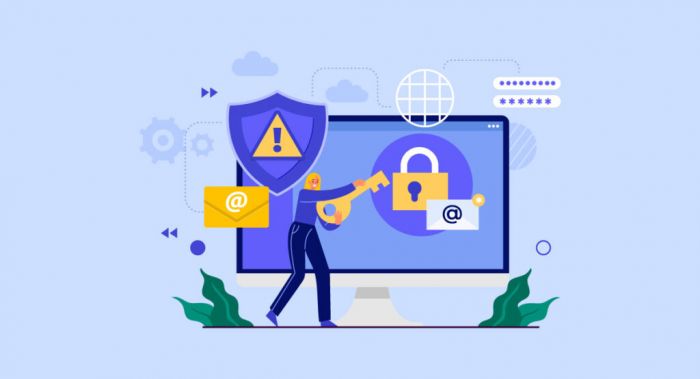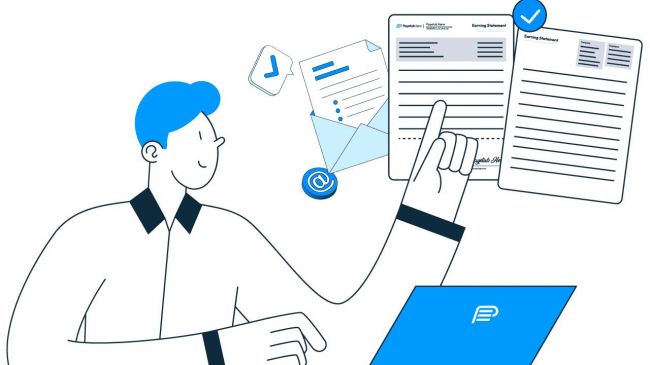If you have a small or medium-sized business, and you think this means you are beyond the reach of cybersecurity threats, think again. Around 46% of cyber breaches are carried out on businesses with fewer than 1,000 employees, with malware and ransomware being two particularly prevalent concerns. What’s more, around 87% of small businesses have customer data that could be compromised in an attack. This data ranges from personally identifiable information to financial data, credentials, previous transactional behavior, and even health information. As such, organizations need to ensure that their security software is effective and catered to their specific needs.
Analyzing Your Organization’s Security Needs

Depending on whether your employees work in-office or remotely, whether your business is likely to grow, and whether you are handling large amounts of sensitive data, your security needs will vary. Therefore, before purchasing security software, it is vital to evaluate different types of protection. For instance, if your employees use laptops, tablets, and phones both in-office and remotely, you can consider purchasing endpoint detection software, which will protect their devices from malware, phishing, and ransomware. If you have a small business without a dedicated IT team, detection and response software (such as EDR or XDR tools) can automatically detect suspicious activity, isolate infected systems, and inform you of the threat, thus minimizing damage. Threat intelligence, which informs organizations of unusual activity, can also help them stop an issue before it escalates into a large-scale breach. Finally, companies that are considering growth and expansion should prioritize security tools that can be scaled and that can integrate with SIEM or IAM solutions, which are designed for companies needing more complex, wider-scale security solutions. With numerous security solutions available, choosing the right one can be challenging. Begin by exploring Cyera’s guide on DSPM to understand how it works and how it enhances data protection, risk management, and compliance within a broader security strategy.
Ensuring Software Complies with Legal Requirements
Even small businesses must meet state and sector-specific regulations such as the California Consumer Privacy Act, HIPAA for healthcare, and PCI DSS for payment data. If your business is located in the US, but it processes personal data of people located in the EU (for instance, if you have an online shop that sells products to EU customers) then you will also need to comply with General Data Protection Regulation (GDPR) standards, which cover how personal data is handled. If your business works with partners in regulated industries, meanwhile, it is beneficial to prove compliance with standards such as the ISO 27001. Your security software must also allow for secure data handling, retention, and minimization. The recently decided NYT v. OpenAI copyright lawsuit saw the judge issuing a preservation order for OpenAI to retain all ChatGPT output logs (even deleted ones) until further notice.
Staying informed about how regulators and courts treat data responsibility is as important as monitoring cybercrime trends. As Forbes coverage of cybercriminal activities notes, cyberattacks are becoming more sophisticated, and businesses that neglect compliance risk both legal penalties and reputational damage.
Selecting Optimal Detection, Visibility, and Actionability Features
When comparing different software options, prioritize those with modern detection capabilities such as behavioral analytics, real-time threat detection, and local and cloud sandboxing (in which the software runs, observes, and analyzes code in an isolated environment to protect your network) for safe analysis. These tools allow you to catch newer threats like fileless attacks, which can be missed by traditional antivirus software. Visibility and actionability, meanwhile, ensure that your software helps you respond quickly to threats. Key features of quality software include clear dashboards and detailed alerts, automated response features (like isolating infected devices), and the ability to create detailed reports for audits and compliance. Of course, you should only deal with transparent vendors who communicate well with you, explain (in great detail) how their products work, and prioritize legal compliance.
When selecting software, businesses have many options, and finding the right match depends on their specific needs. Some companies may have more needs than others, particularly if they sell products to clients from various nations. It is vital to choose software that complies with legal requirements and is quick to detect, end, and inform you of potential security issues that could compromise your organization’s and your clients’ personal or sensitive data.
Final Thoughts
Selecting security software isn’t just about features — it’s about ensuring alignment with your business needs, compliance obligations, and long-term scalability. The right choice combines advanced detection, visibility, and automated response while keeping regulatory requirements in check.
Another critical consideration today is Data Security Posture Management (DSPM). By monitoring how data is stored, accessed, and secured across systems, DSPM provides proactive protection against breaches and compliance failures. To see how these principles apply in real-world scenarios, you can review this Numberlina security deep-dive, which highlights the risks of poorly structured platforms and why DSPM-based approaches matter.
Ultimately, businesses that combine endpoint security, compliance alignment, and DSPM practices are better equipped to minimize risks, respond to threats, and protect their most valuable resource — data.
Post Comment
Be the first to post comment!





